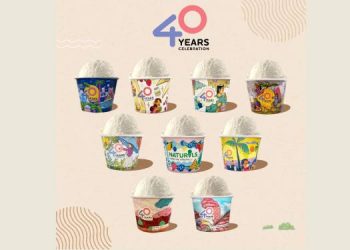Bangalore: The COVID-19 pandemic is likely to alter consumer behaviors permanently and cause lasting structural changes to the consumer goods and retail industries, according to the findings of Accenture’s (NYSE: ACN) COVID-19 Consumer Pulse Research. The research surveyed 2500 consumers in India between March and June, among 45000 consumers globally.
Anurag Gupta, Managing Director and Lead – Strategy & Consulting, Accenture in India said, “The pandemic has taken a toll on brand loyalty and as consumers make more socially and environmentally sustainable and healthy choices, consumer goods companies must tailor their offerings accordingly and refresh their brand promise to meet these new requirements. They will also need to explore ways to rebuild consumer confidence frayed by the pandemic – proof of good hygiene and safety is becoming a key part of brands’ ability to retain shoppers’ trust. Brands also need to look at ways to tap into the opportunities resulting from the demand for local and the emergence of the home as the new hub.”
The India leg of the survey found that 90% of consumers are making lasting changes to how they live, work and shop, and there is no going back to the pre-pandemic world for consumer brands.Consumers are now focused on their most basic needs while cutting back on non essentials. They are more mindful of what they’re buying, striving to limit food waste, shopping more cost consciously and are making healthier and environmentally sustainable choices.A majority of the respondents are now focusing on their personal health.
Personal hygiene habits have changed dramatically, with people hand washing more often and cleaning surfaces at home more frequently -48% of consumers are increasing their purchases of personal hygiene products.
Consumers also remain hesitant to step out of their safety zones to resume previous consumption patterns, are buying local, and embracing digital commerce. The survey found that the pandemic is causing more people to shop for groceries online. The demand for local products, digital commerce and omni-channel services such a home delivery, chat features, and virtual consultations is surging, and is likely to endure beyond this crisis.
‘Staying-at-home’ and ‘working from home’are becoming the norm. The ways in which people spend their leisure time are changing because of the outbreak and related social distancing measures, and again, these habits are likely to continue. Entertainment, learning and DIY have also seen a rise – this trend is reflected in the types of apps that consumers are downloading and the devices they are purchasing, related to entertainment, news, healthcare and education.
Key findings from the research include the following:
Conscious consumption:
- 71% feel that Quality / Safety / Trust are the most considered brand attributes in purchase decisions
- 85%of consumers in India said that they are shopping more health-consciously
- 85% of consumers are focusing more on limiting food waste.
- 75% of consumers said that they’re being more cost-conscious when shopping for products.
- 83%of consumers said that they believe that COVID-19 will increase societal focus on the environment.
- 48% of consumers are increasing their purchases of personal hygiene products, whilst cutting back on more discretionary categories
Love for local: The demand for local goods and local brands is growing. According to the survey, 74% of Indian consumers are buying locally sourced products. 79% of consumers want to shop at closer neighbourhood stores.
The home as the hub and media consumption: Staying in is the new going out. 34% people plan to increase the amount they work from home in the future. Consumers are still sceptical about travel both globally as well as in India. Consumers are finding new ways to fill the extra time that many now have at home. Socializing at home is the preferred option in the next 6 months – 71% consumers are connecting virtually with friends. Media consumption has increased, especially by those currently experiencing more free time –70% are watching more video streaming content and social media usage has gone up by 75%. Device usage across different technologies such as AR/VR headsets, fitness trackers, home automation systems and video conferencing equipment/software has increased significantly.
















